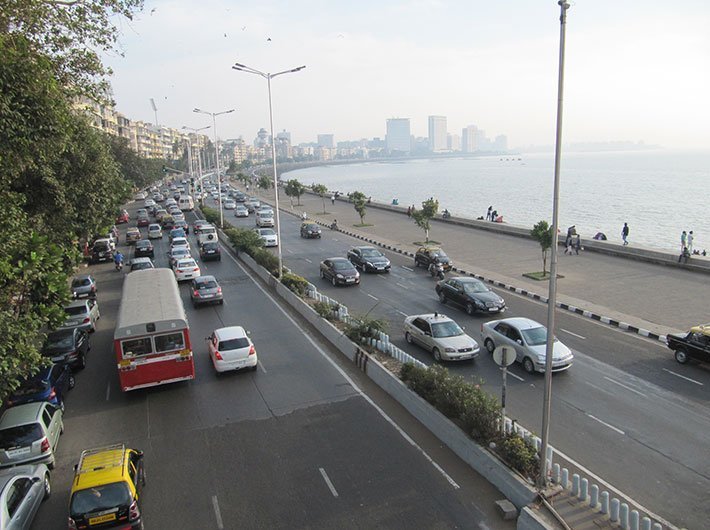The Covid -19 havoc has raised concerns of economic revival, following social distancing norms in crowded public transport, challenges of online learning specially for the poor, migrants and informal housing, etc. Mumbai, the financial capital, has suffered heavily due to the pandemic. Twenty-four professionals and sectoral experts including government administrators, architects, urban and financial planners, educators, doctors, economists, social workers and others have come out with recommendations for the city to stand up again in "Resurrecting Mumbai: Discussing challenges and strategies towards framing an inclusive action plan for post-Covid sustainability":
Health
- Clearly define role of three layers of the government, ie; municipal, state and central government, in providing healthcare and medical amenities keeping and strengthening existing systems. Municipal corporations should take care of primary health centres, states should look after secondary and central government can take care of tertiary and specialized healthcare.
- Hike primary health budget, strengthen existing and tertiary care. State and centre must provide financial support for strengthening healthcare systems
- Recruit and train healthcare staff, fill vacancies, keep aside funds for frontline staff for pandemic situations, experience administrative officials at the helm must have sectoral experience
- Set up centralized urban health data centre
- Implement DP 2034 provisions which allow new health facilities and institutes in city as per density
- SRA and MMRDA must provide for healthcare needs in areas under their jurisdiction
- Create public-private hospital circuit, private hospitals that have received govt subsidies should be made accountable to create reserved facilities for under privileged
- Have focused intervention for mental health
Housing
- SRA should not outsource its planning functions, provide affordable housing, treat a cluster or ‘basti’ as a single unit as against a tenement, no concessions for open spaces and amenity provisons and follow specified town planning regulations, reserve land occupied by slums for affordable housing, abandon free housing and schemes
- Implement Model Tenancy Act proposed by GoI, implement policy for social amenities for women introduced in MCGM’s RDDP 2034
- MHADA must go back to its original role of providing affordable housing, while the markets role should primarily that of contractor
- Maintain DCR standards in construction with active implementation of DP reservations
- Role of govt in case of migrants is to facilitate construction of rental housing units which can be leased to employers, for this use land, FSI as leverage with partnership by prospective employers. Respect collective ownership of Gaothans/koliwadas
Transport
- Strengthen bus service, subsidize BEST bus operations, levy surcharge on consumes of other distribution companies outside of the island city from surplus generated from electricity services, allow private buses for trunk route
- Set up parking authority in MCGM
- Set up multimodal integration and station area traffic management, implement National Common Mobility Card of central govt
- State Finance Commission must recommend sharing of GST revenues between state and local bodies every five years, take forward Urban Transport Fund concept, seek funds as per CMP
- Use technology for revenue collection from public transport
- MCGM must deploy road maintenance management systems for ‘continuously flat’ quality and universal accessibly, build pedestrian and cycle friendly roads.
Education
- Strengthen online virtual classrooms in municipal schools, use various digital tools and apps, education schemes for students coming from low income groups, digital inclusion should bridge gender gap, encourage non curricular activities and personality development and career counseling
- Build teachers capacities, provide mental health related sessions
Economy
- Have a nuanced sector by sector revival plan with specific thrust on certain sectors for jobs revival
- Provide subsidies to MSME’s and SME’S
- Introduce new knowledge based industries and skilling
- Recognize that informal economy is predominant part of Mumbai and a value addition, reinvent the role of Labour department, strengthen linkages between formal and informal economies.
- Create and periodically update informal sector data over and above census exercise
- MCGM along with all parastatal planning agencies specially SRA must put together policies for creation of livelihood spaces and also provided for in DP 2034, redesign street vendor policies, have a pro poor Dharavi Redevelopment Plan
- Have a decentralized and city centric structure for city planning , economy and investments
- Reform rent control and FSI regimes, introduce urgent property tax reforms and new mechanisms for tax collections
- Grants from national revenue in the form of city GST which apportion as part of GST to cities
- Roll out Municipal bonds in Mumbai and MCGM must ensure that projects attached to these bonds are timely implemented
Prioritizing projects where top preference is given to improving health infrastructure followed by informal economy, affordable housing and rental tenements for migrants,strengthening mass public transport with control on private vehicles and decentralizing of education system.



